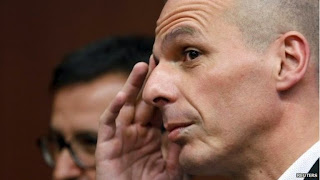Indian Prime Minister Narendra Modi will arrive in Dhaka on June 6 on
his first state visit to Bangladesh, as the two countries move to
further strengthen ties and enhance cooperation in the fields of
connectivity, infrastructure and trade.
Dhaka and New Delhi yesterday simultaneously announced that Modi
would visit Bangladesh on June 6-7 at the invitation of Bangladesh PM
Sheikh Hasina.
According to diplomatic sources in both countries, it will be a
36-hour trip. Modi will fly in on June 6 morning and depart in the
afternoon the next day.
The Indian PM might make certain positive announcements during the visit, said diplomatic sources in New Delhi.
He might declare some economic facilities for Bangladesh to address
outstanding issues, including trade imbalance, they said.
Modi could also announce supply of additional 500megawatt power to
Bangladesh, easing of visa regime, and e-Tourist Visa facilities for
Bangladeshi citizens.
On the other hand, the Bangladesh PM is expected to offer an
exclusive economic zone for Indian investments, said diplomatic sources
in Dhaka.
The Indian PM will hold wide-ranging talks with his Bangladesh
counterpart. The two sides are expected to sign about a dozen important
deals covering trade and investment, road, rail and sea connectivity,
energy and disaster management.
Setting the tone for Modi's upcoming visit, Indian Home Minister
Rajnath Singh said India and Bangladesh would soon approve the
long-pending Teesta river water-sharing agreement.
"Both the countries will give their approval to it very soon. We are
hopeful that we will get full cooperation from West Bengal government",
Singh said at a press conference in Kolkata yesterday.
Ties between India and Bangladesh have been on an upswing ever since the Hasina government came to power in January 2009.
In a statement yesterday, Bangladesh foreign ministry said, “The
visit is expected to further strengthen the excellent relationship
between the two countries.”
India's external affairs ministry made a similar announcement saying
the visit "reflects the importance attached by India to the bilateral
relationship.”
This will be Modi's 19th foreign visit since he assumed power on May
26, 2014. The announcement comes at a time when the BJP celebrates the
Modi government's one year in power.
As part of a policy to deepen engagement with India's immediate
neighbours, Modi had earlier visited Bhutan, Nepal and Sri Lanka.
Following the passage of the Land Boundary Agreement (LBA) bill by
the Indian parliament, The Daily Star first reported on May 8 that Modi
would visit Bangladesh in the first week of June.
A diplomatic source in New Delhi said Modi had made a commitment to
visit Dhaka after resolving at least one of the two major pending issues
-- the LBA and Teesta water sharing.
Yesterday afternoon, high-ups of Bangladesh foreign ministry had a
meeting with Pankaj Saran, Indian high commissioner in Dhaka. Senior
officials of various line ministries attended the meeting that finalised
the draft schedule of the Indian PM's visit.
Source: The Daily Star







